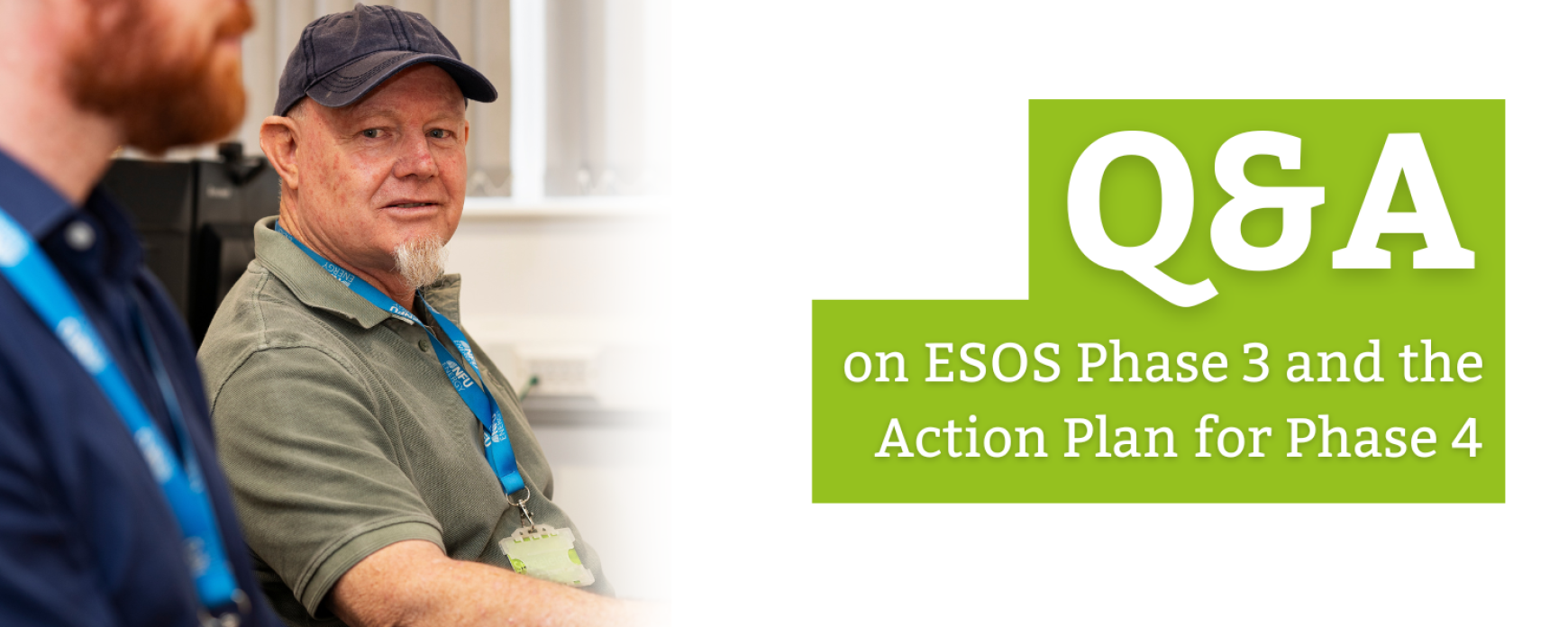This month, we caught up with Roger Stones at NFU Energy to discuss learnings from the Energy Savings Opportunity Scheme (ESOS) Phase 3, developing your Action Plan and getting ahead for ESOS Phase 4
As the UK intensifies its commitment to energy efficiency and sustainability, ESOS continues to be a key program for large businesses. With Phase 3 behind us, it is vital for businesses to reflect on key lessons and proactively prepare for Phase 4.
Q: What are the Key Learnings from ESOS Phase 3?
A: Phase 3 of ESOS highlighted considerable progress in energy awareness across various sectors, including agriculture. Businesses embraced the recommendations from their energy audits, resulting in cost savings and lower carbon emissions. Common improvements included upgrading farm machinery, enhancing insulation in buildings, and optimising energy management practices.
However, not all businesses took advantage of audit findings or met compliance deadlines, resulting in missed opportunities and potential fines. The takeaway from Phase 3 is clear: there is still significant potential for energy savings, which businesses should take advantage of moving forward. We recommend that businesses complete their action plans by the deadline of 05 December in order to keep on track with compliance. The action plans also help to keep them ahead of the curve ready for ESOS Phase 4 reporting.
Q: What can you tell us about the requirements for the Action Plans and when should they be submitted?
A: A major update in the ESOS legislation mandates that businesses must establish an energy reduction target or develop an action plan by 05 December 2024. Additionally, you will be required to report the progress on these targets annually.
Here is what we recommend when completing your action plans:
- Divide your plan into a) buildings, b) industrial processes (agricultural processes) and c) transport. Focus on the processes that best suit your operation.
- Choose realistic and achievable projects, do not major on minors.
- Choose projects that result in meaningful energy savings.
- Build a list of planned projects.
- Set realistic implementation dates, ESOS requires the month and year.
- Begin collecting energy usage data now to create a strong baseline. This will simplify the audit process and assist in setting realistic energy reduction targets.
- Plan how to measure and verify each project’s energy savings.
- Implement a system for tracking and reporting energy usage annually. This will help ensure compliance and provide insight into the effectiveness of your energy saving measures. Consider collaborating with energy consultants, such as NFU Energy, to develop and implement your action plan efficiently.
Q: How does the Environment Agency plan to support businesses facing delays?
A: While the deadline for submitting ESOS Action Plans remains 05 December 2024, the Environment Agency and Devolved Administrations Regulators have acknowledged delays in the development of the MESOS digital service. To assist businesses, the deadline for submitting Action Plans has been extended to 05 March 2025.
Despite this extension, we recommend working towards meeting the 05 December deadline where possible. The Environment Agency has announced that additional guidance and an online system template will be available by 01 November 2024.
Q: What can businesses do now to prepare for ESOS Phase 4, and what are the key benefits of early preparation?
Early preparation for Phase 4 offers several benefits:
- Avoid Penalties: Noncompliance can lead to fines up to £50,000 plus daily charges. Starting early helps mitigate this risk.
- Cost Savings: Implementing energy saving measures can significantly lower operational costs.
- Competitive Advantage: Demonstrating sustainability commitments enhances your reputation and aligns with the UK’s Net Zero goals.
To ensure success in ESOS Phase 4, we recommend:
- Begin Planning Immediately: Do not wait for deadlines. Start assessing your energy use and pinpointing improvement areas now.
- Develop a Robust Action Plan: Meet the 05 December 2024 deadline with a clear plan or targets to reduce energy consumption.
- Invest in Energy Management Systems: Use technology to gain real time insights into energy usage and inform decision-making.
- Commit to Continuous Improvement: Regularly review your progress and adjust your action plan as necessary to stay on track with energy reduction goals.
ESOS offers both challenges and opportunities. By understanding the new requirements and acting promptly, you can ensure compliance, enhance sustainability, and achieve substantial energy and cost savings.
At NFU Energy, we are committed to supporting you through every step of this process. Ready to take the next step? Contact us today to learn how we can help you maximise the benefits of ESOS Phase 4.


